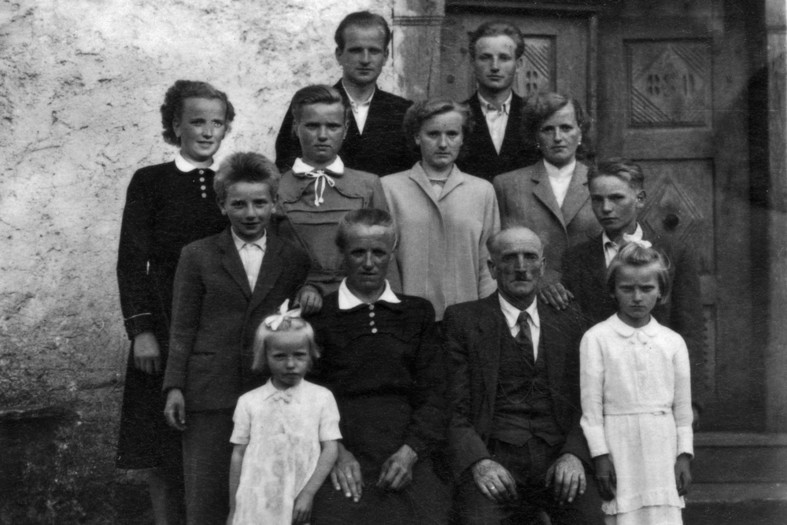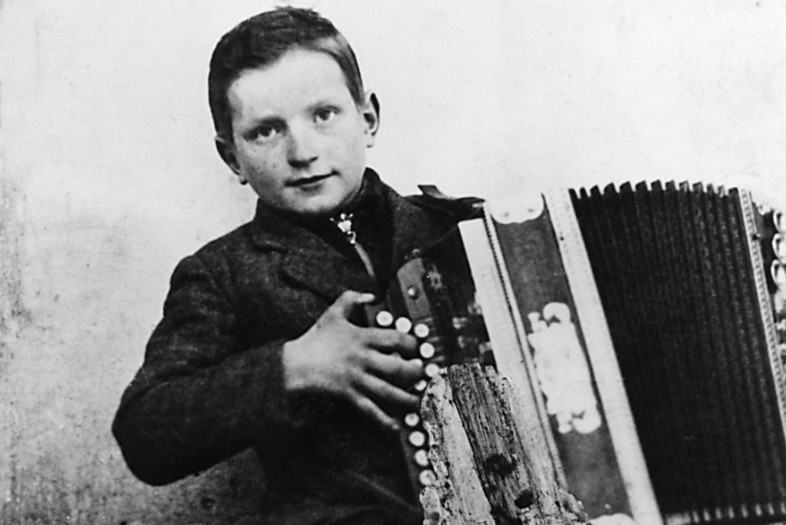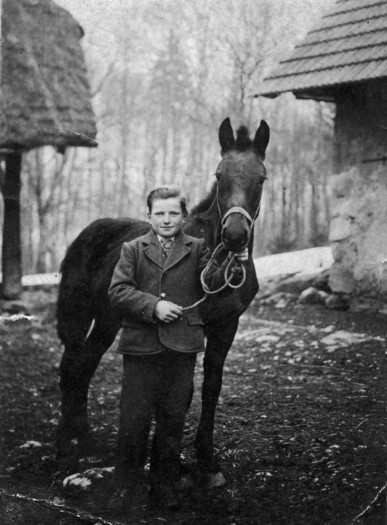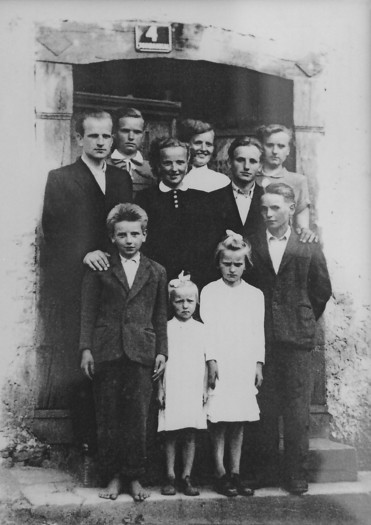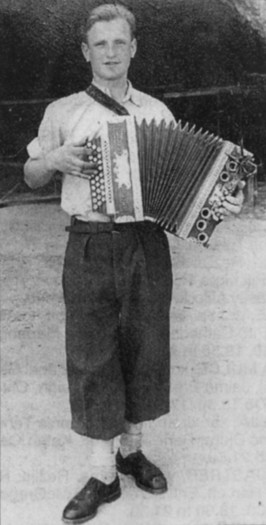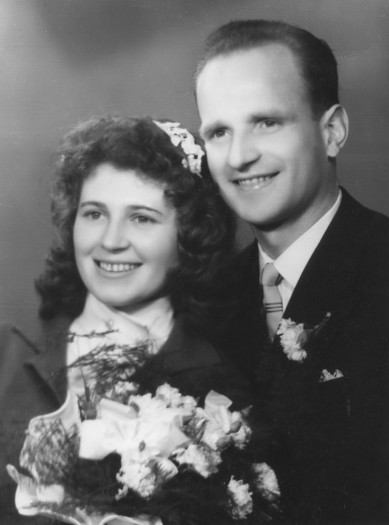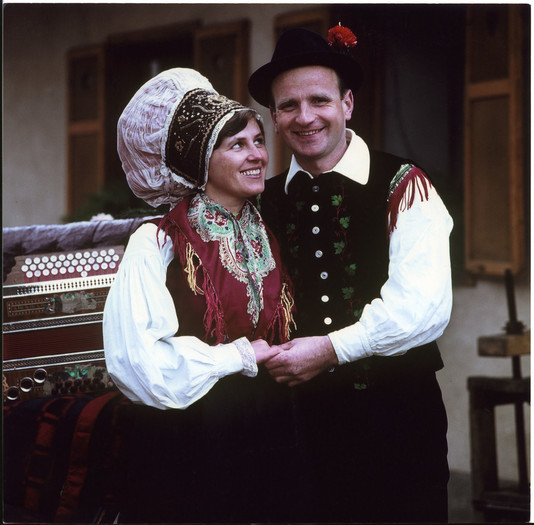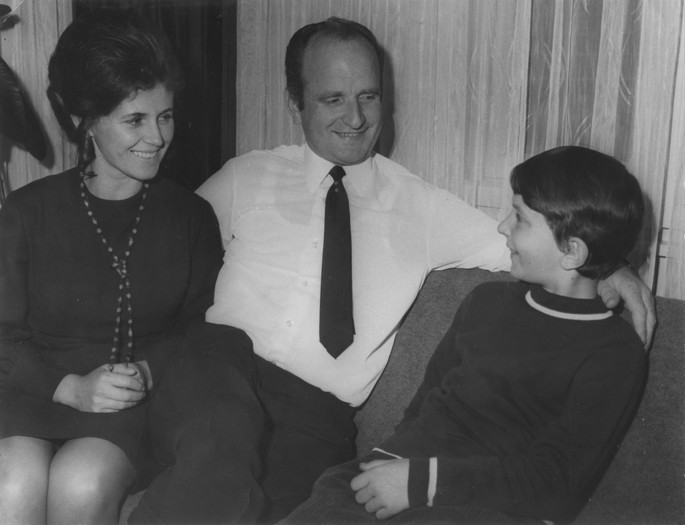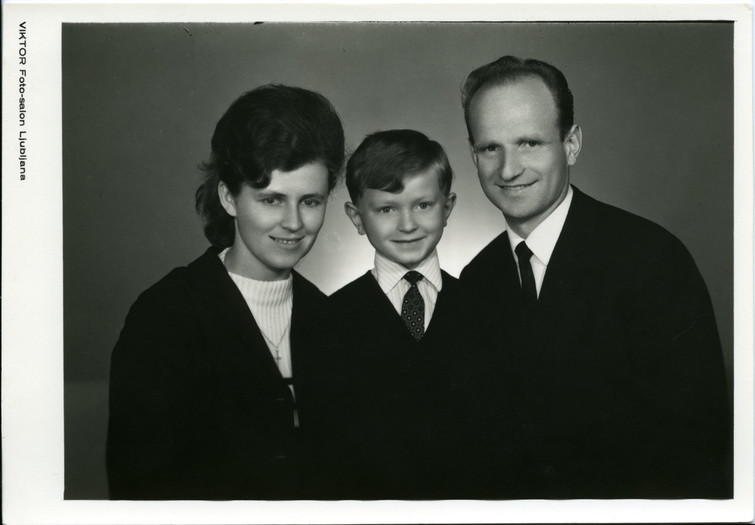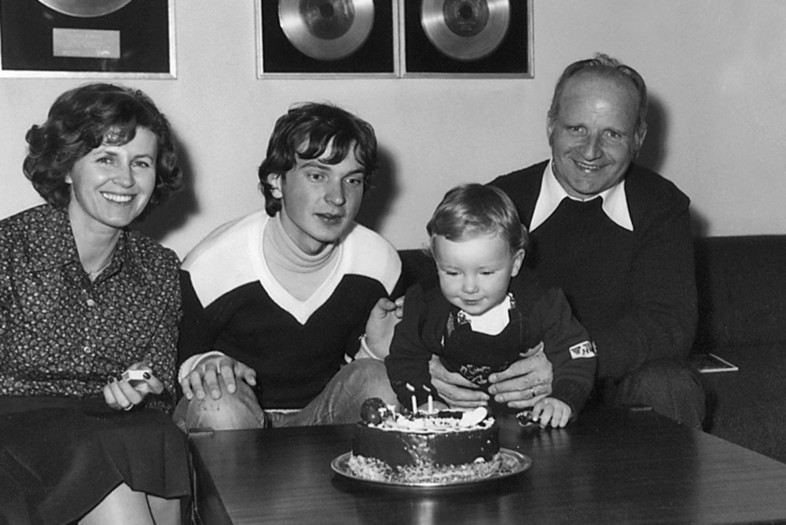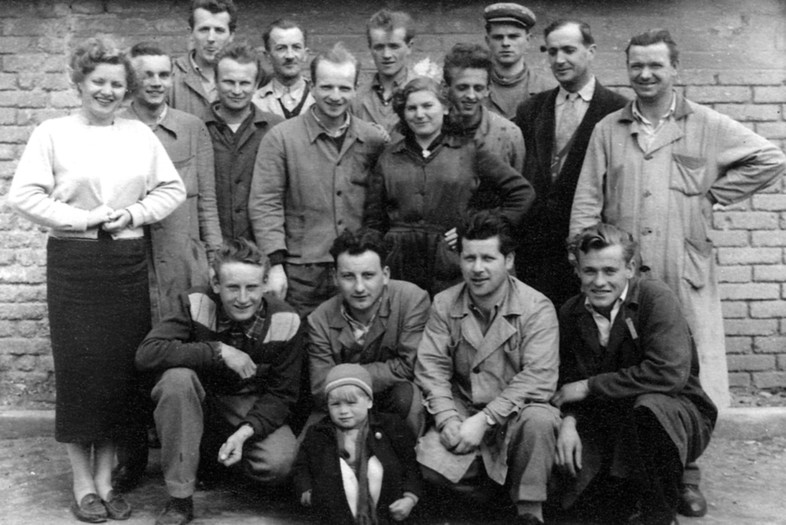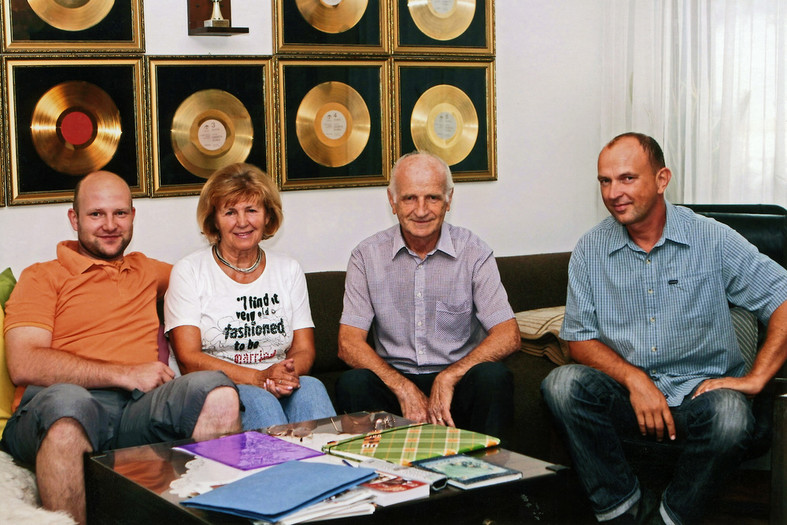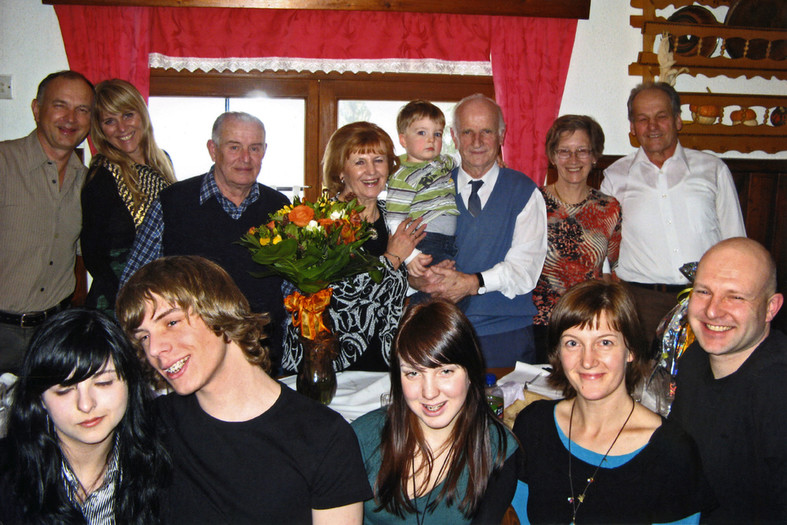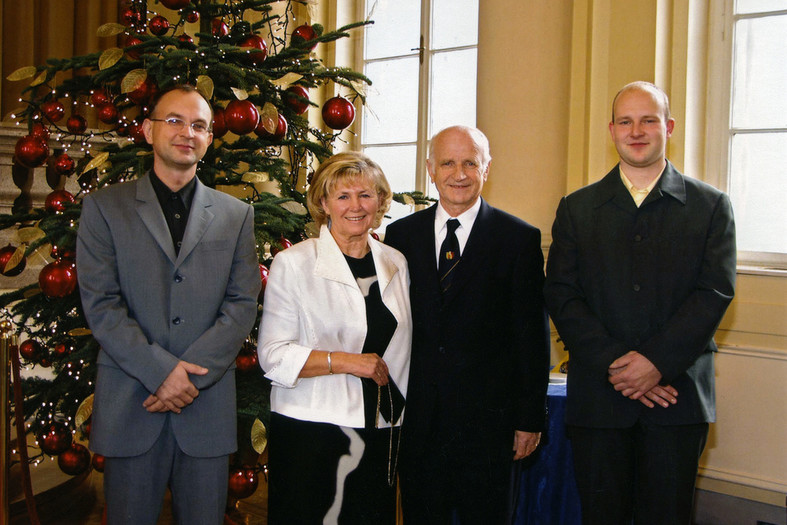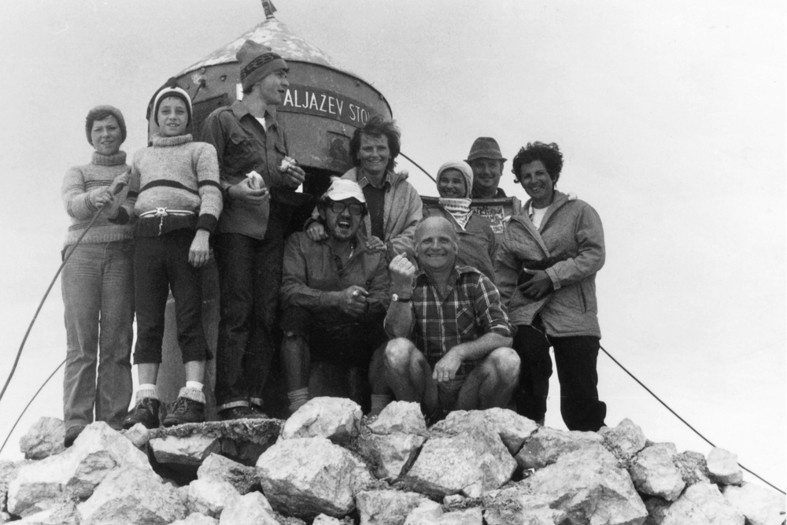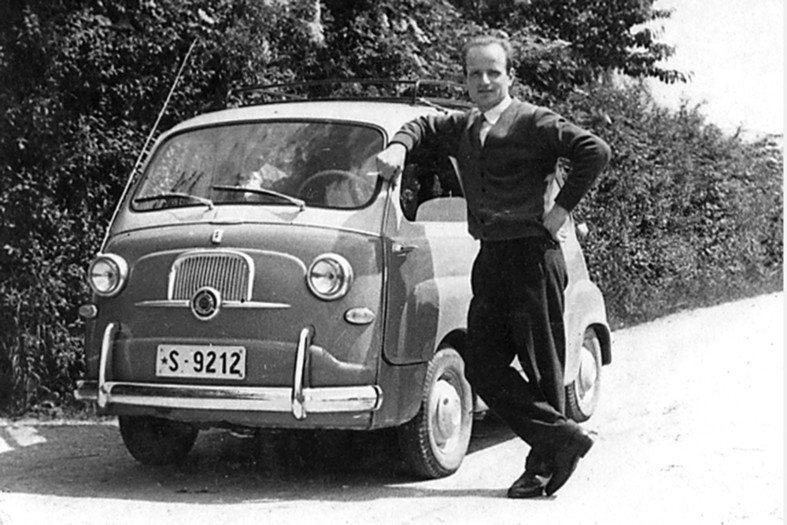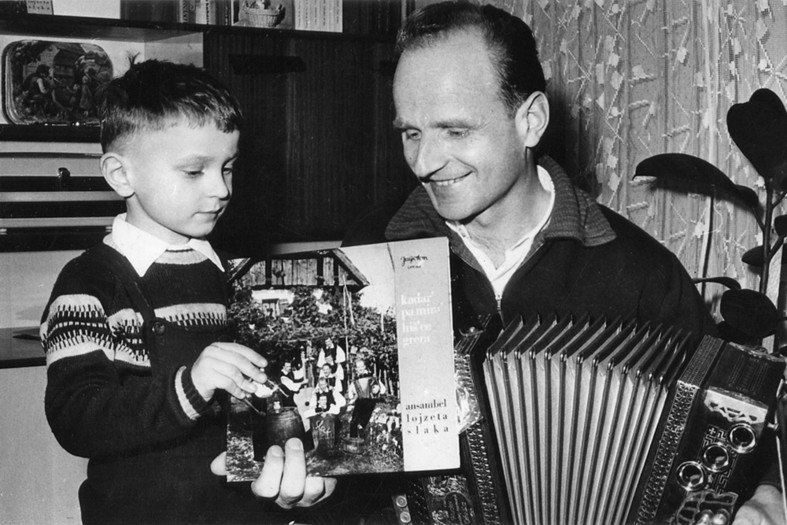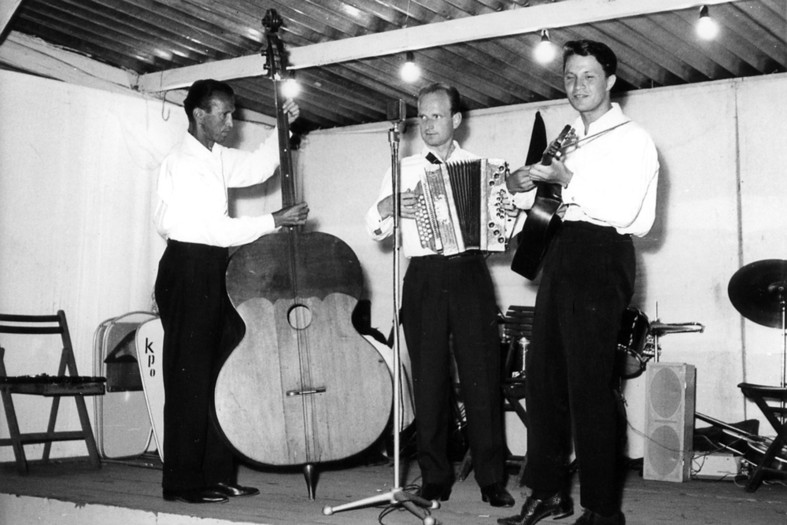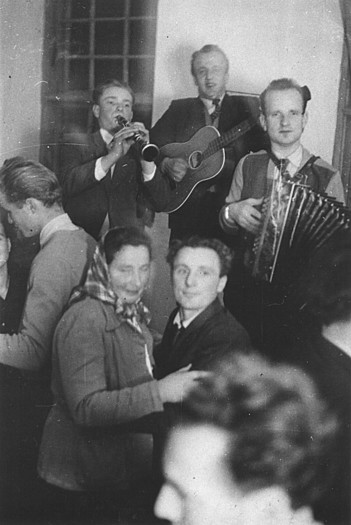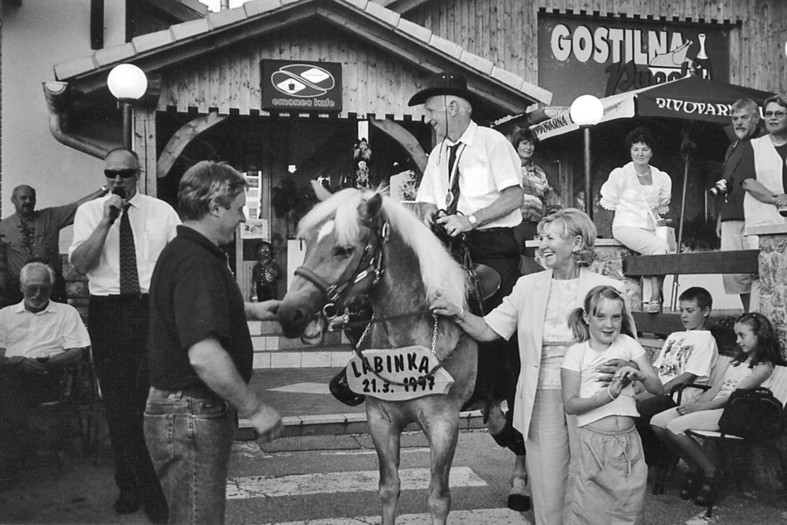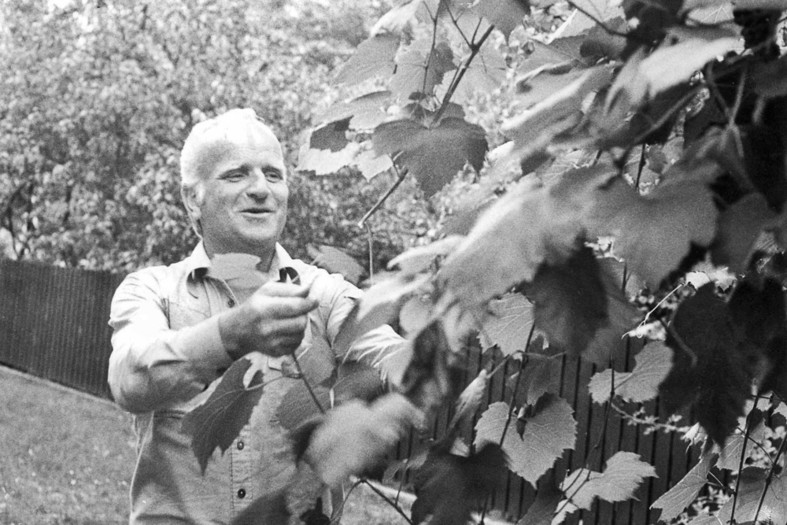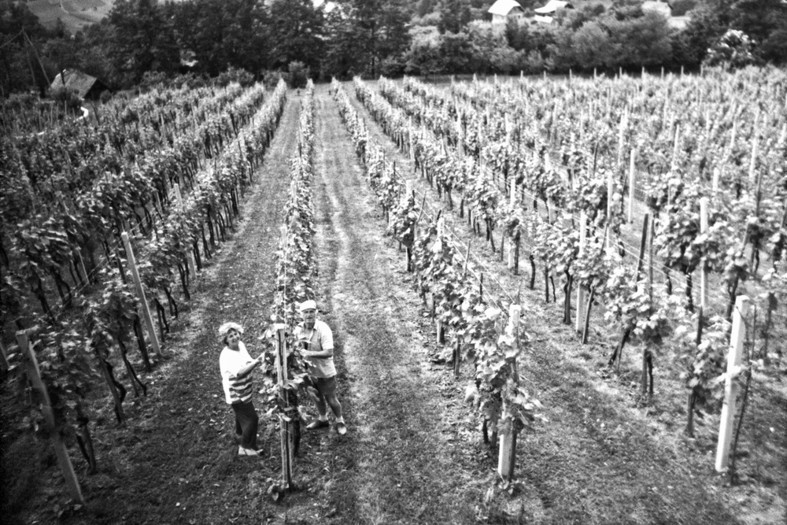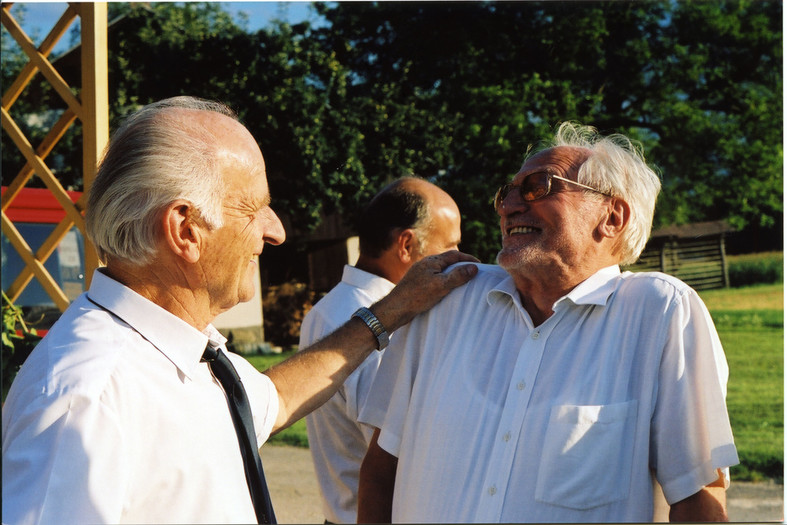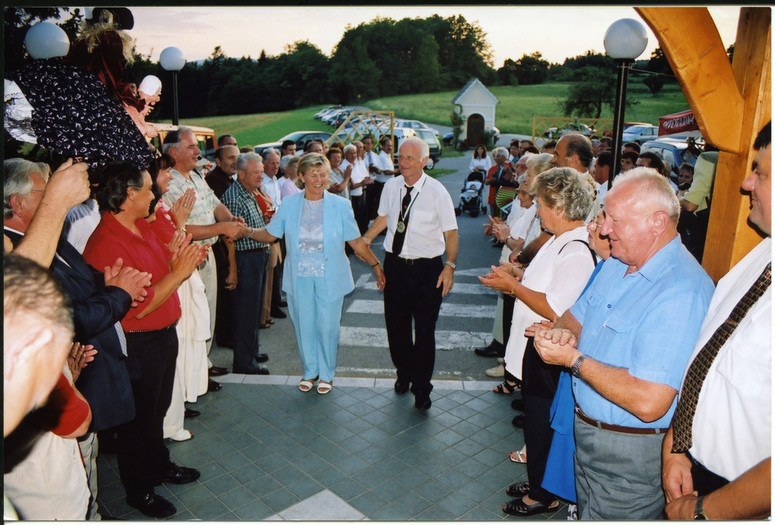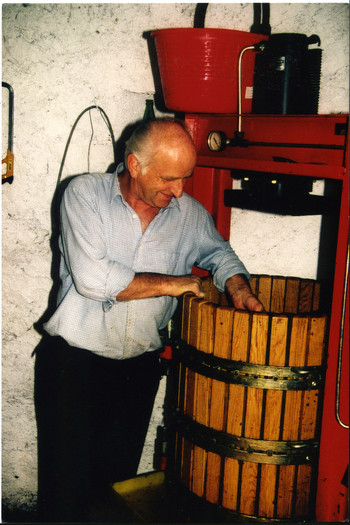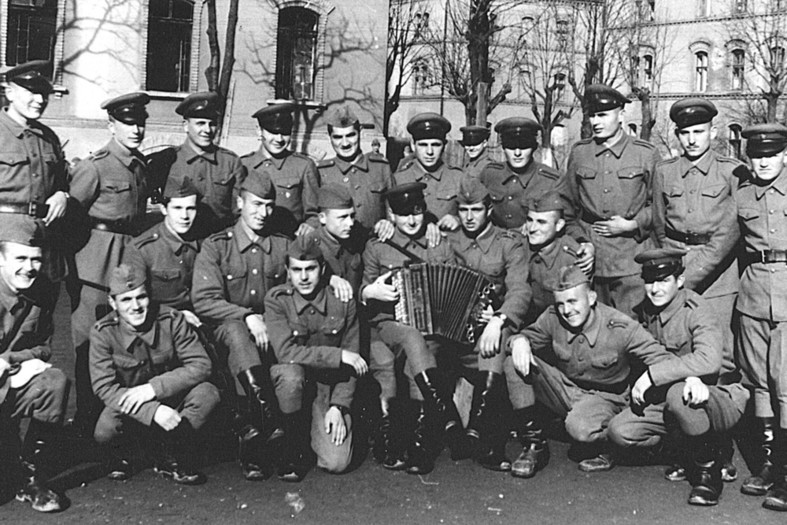THE LIFE PATH OF LOJZE SLAK
Lojze Slak was born on July 23, 1932 in the village of Jordankal near Mirna Peč in the Dolenjska region. However he spent most of his youth with his grandmother in Mali Kal, as Slak's family numbered ten children and little Lojzek had to leave home due to his mother's illness before he turned first year. This, in turn, had a fatal effect on his later life.
Uncle Ludvik had a diatonic accordion, with which he played at village celebrations, and little Lojzek was completely enchanted by this instrument. Even before he went to school for the first time, he already knew more than a dozen songs. Uncle Ludvik showed him a lot, but when he played the accordion, he encouraged him to learn better on his own.
After the abolition of the Slak Brothers Ensemble, Lojze Slak went to Ljubljana to find a job there. Among other things, he was also a driver at Petrol. He trained as an upholsterer in Novo mesto and got a job at the then Furniture Factory in Ljubljana, later named Hoja. With hard and successful work, he progressed from a professional worker to a commercialist in the company, and he remained in this position until his retirement.
In February 1960, he married Ivanka Gaber, whom he met in Ljubljana. She was a young woman from the Styrian village of Javorje near Gorica at Slivnica. In 1960, Lojze and his wife Ivanka had their first son - Slavko, and sixteen years later their second son Robert. In the 1970s, Slak's family moved from an apartment in Dravlje in Ljubljana to a newly built house in Šentvid near Ljubljana.
Ivanka and Lojze Slak have had celebrated their golden wedding on February 20, 2010 in a family circle and with friends. Lojze Slak played his last concert on December 16, 2010, when he performed with the ensemble at Cankarjev dom in memory of his friend and guitarist in the ensemble Milan Ferlež.
Lojze was once asked what he would do when he could no longer play, but he replied without hesitation: "Then I will just die!". Lojze Slak lost his battle with the disease on September 29, 2011. He is buried next to the church of St.Vid in Šentvid near Ljubljana.
BARBO'S SLAK
Lojze Slak was born on 23rd of July 1932 in Jordankal near Mirna peč in the Dolenjska region to mother Ana and father Matija as the fourth child. A few months after his birth, his mother has became seriously ill, so he was temporarily taken into the care by his mother's parents Marija and Jože Barbo from Mali Kal, hoewer he remained there until his departure for Ljubljana in 1954. He spent his childhood and adolescence in a peaceful environment and he had mutual visits of both families. After the homestead where he lived, he was named Barbov Slak.
The homestead on Jordankal was a solid Dolenjska farm, where the Slak family has been present at least since the middle of the 18th century. There were ten children in the Slak family: Marija, Stanislav, Ana, Alojzij, Jožefa, Vida, Matija, Anton, Kristina and Gabrijela. When little Lojze arrived in Mali Kal, his uncles Anton, Ludvik and Lojze and aunts Marija and Frančiška also lived there. Uncles Lojze and Ludvik had a great influence on his first encounters with music and later musical path.
NOBLE ORIGIN
The Barbo family is a Carniolan noble family originating from Italy. The surname and even family is said to have originated in Rome, presumably from the time of the famous Roman emperor Nero, who ruled the Roman Empire 2000 years ago. From here it is said to have settled in Parma, where it first appeared in historical records, and later in the 8th century the Barbos were among the first patricians in Venice. In the 15th century, the family is said to have settled in Istria. The author of the book Anica Levstik (2020) described their extensive family background, supported by numerous legal documents and historical records, in her book Rodbina Barbo.
In the first half of the 18th century, a love affair began between Barbo's Countess of Lukinje and the lord of the Hmeljnik castle. From this secret love was born a child, a son who was not born in marriage. Nevertheless, the the lord of the Hmeljnik castle cared of his son and materially supported him until he came of age.
Barb's family has been expanded further and according to sources, at the end of the 18th century, in 1791, a branch of the family was divided into Gorenje Kamence, where Bartolomej Barbo married Apolonija Grivic. From there the surname has been spread to Sevno at Trška gora, Šmarješke Toplice and Birčna vas, and the next generations went to all parts of the country. In Dobje, Mali Kal, Kamence, Šmarješke Toplice and Sevno, the Barbo family is still present there today.
Lojze's mother Ana Barbo was born in 1902 and lived in Mali Kal no. 1. In 1928 she married Matija Slak and together they lived on a farm in Jordankal no. 3. Ana and Matija started a large family with eleven children, their son Matija, born in 1936, died barely a year old. Lojze Slak (Alojzij), born on July 23, 1932, was their fourth child.
EDUCATION AND CAREER
Between 1939 and 1946, Lojze Slak attended primary school in Dolenje Karteljevo, but his schooling was interrupted several times due to the world war II. From 1947 to 1951 he studied to be an upholsterer in Novo mesto with his master Alojz Pavlič in Kandija. Immediately after finishing the school, he served a two-year military service as a guardsman in Zagreb and Belgrade.
From 1954 to 1964 he worked as an upholsterer in the company Pohištvo na Viču in Ljubljana. In the meantime, he also passed the exam for a professional car driver and fulfilled his great desire to pursue a profession related to cars. From 1964 to 1972 he worked as a professional driver at Petrol company. In 1972, he combined both of his professions, as he joined Žimnica, later Hoja company, where he progressed from hard worker to commercialist in the company and remained in this position as a commercial agent until his retirement in 1990.
LOJZE SLAK'S FAMILY
Living in Ljubljana he also met his heartfelt love and life partner Ivanka Gaber, who was once invited to their home by Lojzet's sister Marija. Ivanka was a young woman from the Styrian village of Javorje near Gorica at Slivnica. They married in February 1960, and in the same year Lojze and his wife Ivanka in Ljubljana, where they both lived and worked, their first son Slavko has born, and sixteen years later also their second son Robert.
Lojze Slak has indeed moved to Ljubljana in 1954, but his spiritual and musical roots remained in Dolenjska all of his life. He drew lyrics from the Dolenjska folk tradition, and poured the ripples and softness of the Dolenjska region into his music. He said to himself that he is the true soul of Dolenjska. Dolenjska was the greatest inspiration in his musical creation. He often returned to his relatives and friends in a peaceful environment. On Trška gora, the Slaks built a vineyard cottage and Lojze planted vines and he had his horses in Hmeljčič.
In Dolenjska, Lojze Slak spent his free time with his wife Ivanka and sons Slavko and Robert. The last years of his active life were most dear to his granddaughters and grandchildren, who were very proud of their grandfather, because despite the abundance of work, he was always happy to take time to play with them.
MUSICAL ROOTS OF LOJZE SLAK
Folk music is the traditional, mostly orally transmitted music of various peoples. It includes vocal, instrumental and dance music. In Slovenia, there was always polyphonic singing, instrumental ensembles were different in different regions, and polka and waltz predominated among the dance rhythms.
Lojze Slak has been meeting with folk singing and playing the diatonic accordion since his childhood in a family environment in the Dolenjska region. They had an accordion in Barbo's house, so the village boys gathered in the evenings and sang folk songs. Uncle Ludvik was a musician and Uncle Lojze also played the accordion. Even before entering primary school, Lojze secretly took his uncle's accordion several times and learned to play on his own. As a fourteen-year-old, Lojze played at the wedding for the first time on his own and set out on the path of his role models - his uncle Ludvik and the esteemed musician in the Novo mesto area, Franc Potočar. The young boy’s talent and perseverance was very obvious.
SLAK BROTHERS ENSEMBLE
In 1957, Lojze Slak appeared on the radio show "Show What You Know!" with his diatonic accordion, although until then it was not desirable to play this instrument on Radio Ljubljana. It was considered an accordion, with which quality performance of music is not possible. However Lojze Slak won the show and thus received confirmation of his work. Nevertheless, on the recommendation of music editors on Radio Ljubljana between 1957 and 1963, in addition to diatonic accordion, he also played the chromatic accordion, but this did not convince him. From that year on, he played only the diatonic accordion.
Slak's greatest wish was to form his own ensemble. In 1958 - 1959 he founded it together with his three brothers and called it the Slak Brothers Ensemble, which has been operated until 1961. In the Slak Brothers Ensemble Lojze played accordion, Tone played trumpet, Matija clarinet and Stane bass. They recorded four songs for Radio Ljubljana with the titles: Mirnopeška polka, Pomlad na deželi, Svatje že vriskajo and Vijolice. Mirnopeška polka was the first song written by Lojze Slak.The development and existence of the ensemble was prevented by the long absences of the brothers due to their departure for two years of military service.
After the abolition of the Slak Brothers ensemble, Lojze Slak went to Ljubljana to find a job to support himself.
DOLENJSKA ROOTS
Until the mass development of motoring after the Second World War, horses had a very large and important place in the life of Dolenjska man. The owners involved them into farm work, transport and freight, as well as in events related to customs and traditions from birth to death (transport of midwives, wedding guests, boys to millitary service, recreational riding, horse racing, funeral transport, etc.). Horse-equipment and wagons were made to suit the occasion and additionally decorated for ceremonial events. The horse was the owner's friend and at the same time a symbol of economic power. Craftsmen such as blacksmiths, saddlers and carters were also associated with horses.
In the life of Lojze Slak, horses were present all of his live, as Slak and Barbo family had them. He loved them very much, despite having experienced a horse-related accident twice. His profession was also partly tied to horses since he made horse-gear at his first job. For his 70th birthday, his wife Ivanka gave him a breeding mare named Labinka.
AMBASSADOR OF CVIČEK WINE
As a child, little Lojzek used to go among the vines with his parents and uncles and thus get to know the attachment of the people of Dolenjska to the vineyards and also the atmosphere during various tasks. Slovenian writer Janez Trdina wrote that in Dolenjska every plot is tied to a vine, which reflects the fact that in the past the fragmented estate enabled many small vineyards, the cultivation of which means primarily traditional attachment to the vineyards, entertainment, socializing, joy with a glass of own wine and to a lesser extent also economic benefit. Having a vineyard and a vineyard cottage is still a way of life in Dolenjska today. Thus the following vineyards were formed in the municipality of Mirnopeč: Poljanska gora, Hmeljčarska gora, Laze, Gradišče, Golobinjek, Grč Vrh.
Many folk songs are known in our environment, which speak of the vine, the cultivation of vineyards, wine and customs related to viticulture. In the past, singing was often heard from the wine hills in all seasons, but mostly in autumn. Harvesting is the most beautiful task and St. Martin's Day is the biggest holiday of winegrowers.
Lojze Slak and his compatriot, the poet Tone Pavček, respected the work and feelings of their ancestors and their attitude towards cultivating the land - including vineyards, which they both expressed in their poems. Both became winegrowers - Lojze Slak on Trška gora, Tone Pavček in Seča in Primorska region. Growing wine was a joy for them and reviving memories of their childhood in Dolenjska.
Lojze Slak produced exceptional quality wine - Dolenjski cviček in Trška gora in his vineyard, for which he received numerous recognitions and medals at the Novo mesto Cviček Festival and with which he earned the flattering title of Cviček Ambassador.
Lojze was once asked what he would do when he could no longer play. Without hesitation, he replied: "Then I will just die!"
Lojze Slak died on September 29, 2011. He was buried at the church of St. Vid in Šentvid near Ljubljana.

